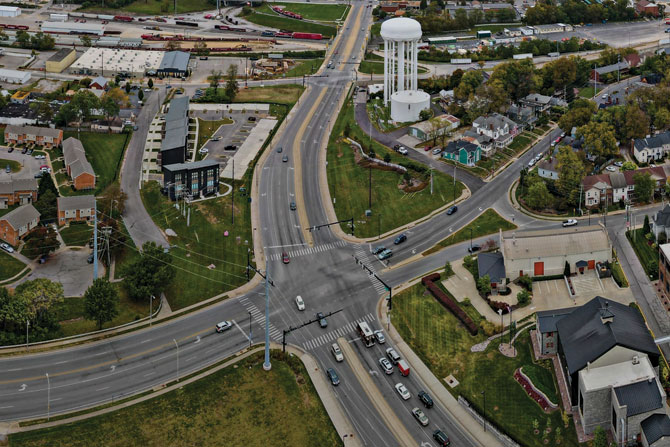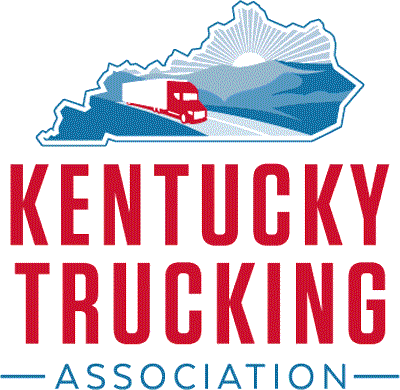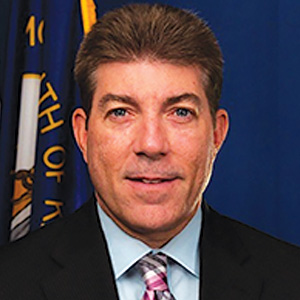When President Biden addressed G-20 leaders Oct. 31, 2021, at their annual gathering, he acknowledged something truckers have always understood: “Supply chains are something that most of our citizens never think twice about until something goes wrong.”
The trucking industry is a key part of the nation’s supply chains, and our work is important to this country’s health and vitality. But supply chains, and truckers in particular, depend on good roads and bridges. That is why the KTA strongly advocated for the $1.2 trillion infrastructure bill that finally passed Nov. 5, 2021. There were 19 Republican Senators who voted for the bill, including Mitch McConnell, and 13 House Republicans who voted with the bill’s Democratic supporters.
Truckers understand the importance of keeping to schedules and getting goods to their destinations as efficiently as possible. If they don’t understand, they soon move on to other industries. The infrastructure bill is an important step for reducing or eliminating the country’s current problem with supply chain bottlenecks, and we are happy it passed even though the supply chain problems are likely to continue well into 2022 or even 2023.
The U.S. has gone through entire decades where infrastructure was either neglected or given an inadequate amount of money for repairs. Despite that reality, freight demands have seen exponential growth. ATA President and CEO Chris Spear said the following after the bill had been passed: “Roads and bridges are not political — we all drive on them. A majority in the House realized this today and did what’s right for the country, not themselves.”
He went on to explain, “From farmers to truckers, the millions of hard-working people who make this country great won today. Those lawmakers who put their constituents before themselves to help seal this achievement have cemented a lasting legacy that the American people will now see, feel, and use for many decades to come.”
“Supply chains are something that most of our citizens never think twice about until something goes wrong.”

When talking about the infrastructure bill, President Spear mentioned the decision to lower the age requirement for drivers. The age change will allow 18-year-old drivers to drive trucks across state borders. According to the Fleet Owner website, the bill establishes the DRIVE Safe Act and a Women in Trucking Advisory Board to work with the Federal Motor Carrier Safety Administration. DRIVE Safe will let up to 3,000 drivers at a time who are 18-20 undergo advanced safety training as preparation for interstate commerce. We should start to see the effects of that soon. But it will still take time to implement other aspects of the infrastructure bill, such as allocating $347.5 billion for highways and $37 billion for bridges.
Meanwhile, another rule can also make an immediate difference. I’m talking about the recent modifications to vaccination requirements.
KTA has been especially concerned about the Occupational Safety and Health Administration’s (OSHA) vaccination requirements for drivers. We favor vaccination, but we also favor policies that consider real-world circumstances. Jeremy Kirkpatrick, an ATA spokesperson, explained the argument against overly aggressive vaccination requirements for drivers when he said, “[Drivers] spend the vast majority of their workday alone and have minimal contact with others indoors.” I agree: drivers who work alone 90% of the time shouldn’t be forced to get vaccinated unless that’s what they choose. It’s unnecessary.
A vaccination exemption for single drivers makes even more sense when you think about the driver shortage. Forcing drivers to be vaccinated unnecessarily is the sort of policy that can discourage people from becoming or continuing to be drivers. If an unvaccinated driver isn’t going to be face-to-face with others most of the time, they should wear an effective, high-quality mask when contact does occur. That’s the accommodation that makes sense. A mask will keep everyone involved safe and healthy without making anyone’s life overly complicated.
The vaccine mandate could have affected the commercial truck driver population, but Labor Secretary Walsh apparently agreed with leaders in the trucking industry. OSHA has now issued a temporary emergency standard on the vaccine mandate. Like the successful infrastructure vote, the adjustment to the standard took place Nov. 5, 2021.
It took a long time to get an agreement about the infrastructure bill’s contents, in part because many industries (including the trucking industry) were lobbying hard to keep the parts of the bill that made sense and to leave out the parts that didn’t. President Biden correctly said the bill’s passage is “a monumental step forward as a nation.” He’s right about that.
The infrastructure bill has been a long time coming, and I am relieved that fight is over. Now comes the next struggle: doing our part to make sure those dollars are used wisely.
KTA looks out for its members. Please call us, and me, when you need help. We want to hear from you and will do what we can to make your job a little easier.










